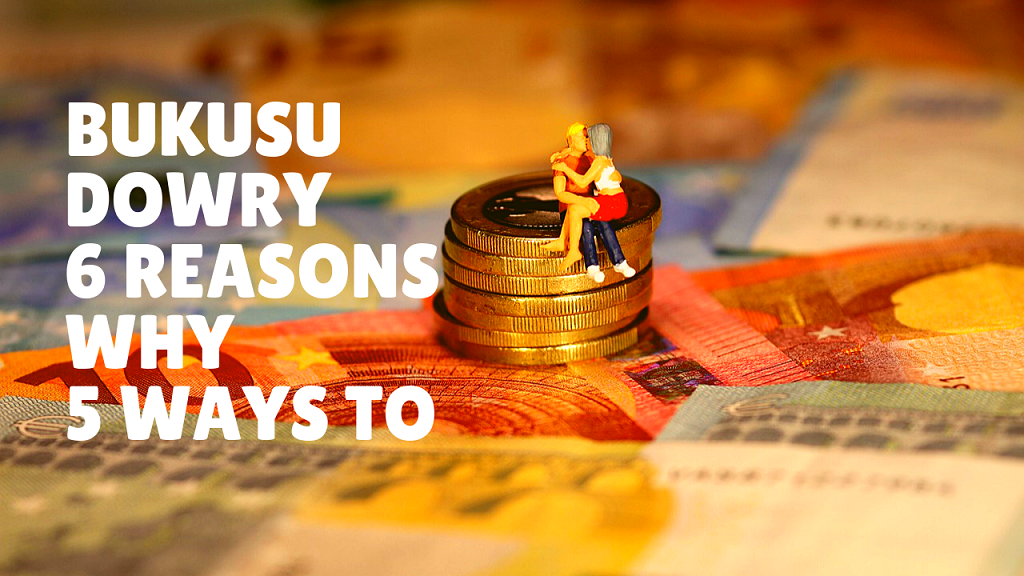This is why you can’t herd a few goats and claim to have paid Bukusu dowry
Gaining the status of in-law to a Luhya family is one of the best decisions one can make. For us, an in-law is the most sacred, most important relation one can have. Especially so if your in-laws are Bukusu. This is because of all the oluyias that make up Mulembe Nation, the Bukusu have remained steadfast in the ways of baguka in how one should treat an in law.
Dear brothers it is for this reason that you should desist from the ways of Situma who had to khurunga kumurwe when sh*t hit the fan whilst he was cohabiting with someones daughter.
Brethren, this guide on the bare minimum for marrying a Nakumicha, Nabalayo or Metrine will improve your life. For once a man comes to an agreement regarding bride price with his khalinjola‘s family, they are assured to being treated like royalty to their grave.
Moreover, it matters not how you started your marriage. This is because Bukusu marriage customs recognize all types of relationship status including eloping -which we today sanitize as come-we-stay. All that matters is the the raider after our daughter begins the process to bukhwe by acknowledging the following six reasons and availing the cows.
However, this is not to say that this is all there is to it. Depending on your situation, if for example you love birds sired children sans paying of dowry, you will be guided accordingly. Nonetheless, in no way is this post meant to help you cheat your way out of negotiations. For negotiations for payment of Bukusu dowry are part of the process of families knowing each other and forming a bond as basakwa.
BUKUSU DOWRY: SIX REASONS TO WHY
Khukhwaula / Enganana/ Bukhwe is the act of solemnize the negotiations. It is a moment when the two families are in a reciprocal act of giving and receiving to form a new relationship.
1. Sirara
Loosely translated, sirara is a granary full of food. This cow was meant to showcase profound love the man has for his wife to be. Bukusu dowry payment is meant to partly cover for that.
2. Lukosi
Lukosi is love or goodwill.
3. Kumuliano
Loosely translated, kumuliano means “eating together”. The symbolism here is by paying dowry, the families acknowledge that they had hitherto been strangers; however, they are beginning a new journey where they will eat together, cry together and come to each other’s aid. Also symbolizes continuity of wealth in generations.
4. Khuandalasia bulebe
Omulebe is a kinsman, while khuandalasia roughly means “to strengthen/cement”. Payment of Bukusu dowry does that: calls people together to strengthen kingship.
5.Khurunga khucha mumarango
For all the joys of marriage, physical and otherwise.
6. Kumwoulo
For she is a rare gem.
THERE ARE FIVE TYPES OF COWS THAT MUST BE PAID IN ANY BUKUSU DOWRY
First, a quick guide for the heavy Lubukusu that follows. Whenever a Mbukusu says “eye” or “eye” he or she means “the one for”. Our quick Lubukusu lesson out of the way, these are the five cows, each with its purpose, that you must pay as Bukusu dowry for your Nakumicha. Might we remind you that these five are the “starter pack” of the standard thirteen required.
1. Ekhafu eyekhusera
This the cow that your mother-in-law will milk as compensation for taking her daughter away. The Bukusu considered that were it not for your marriage, the bride to be would have been home contributing to her family’s economic welfare.
2. Eyelubeko
Lubeko is a remembrance ceremony done in memory of the departed that is observed by shaving of hair among other things. This cow symbolizes that fact that your wife would die in your hands as divorce back then was rare. By accepting this cow, her family relinquishes everything to you.
3. Eye khukwisia situru
Khukwisiasituru translated as making the breasts fall. This cow is paid because she will bear you children who will suckle her.
4. Eyembako
This cow is compensation for the fields she would have tended for her parents.
5. Eyakocha/ Mabiyo
This cow is reserved for maternal uncles. It helps to further cement relations by involving the bride to be relatives from both ends.
Mukhwasi Kamili
Brother, once you have honored our ways in these ways, you are your way to becoming a full mukhwasi. This is to say that your Nakumicha will never come visiting and revert back to the home you’ve made together empty handed. She will have to come back bearing the gift of enyama esike or the biggest kienyeji itaywa as “pole” for leaving you uncatered for.
Moreover, if your Nakumicha goes to be with baguka, you have all the customary rights to her bones. Not one to spill beans where unnecessary, kindly mukhwasi step into my corner so that I can tell you all that you are entitled to as a brother-in-law once you pay Bukusu dowry.

